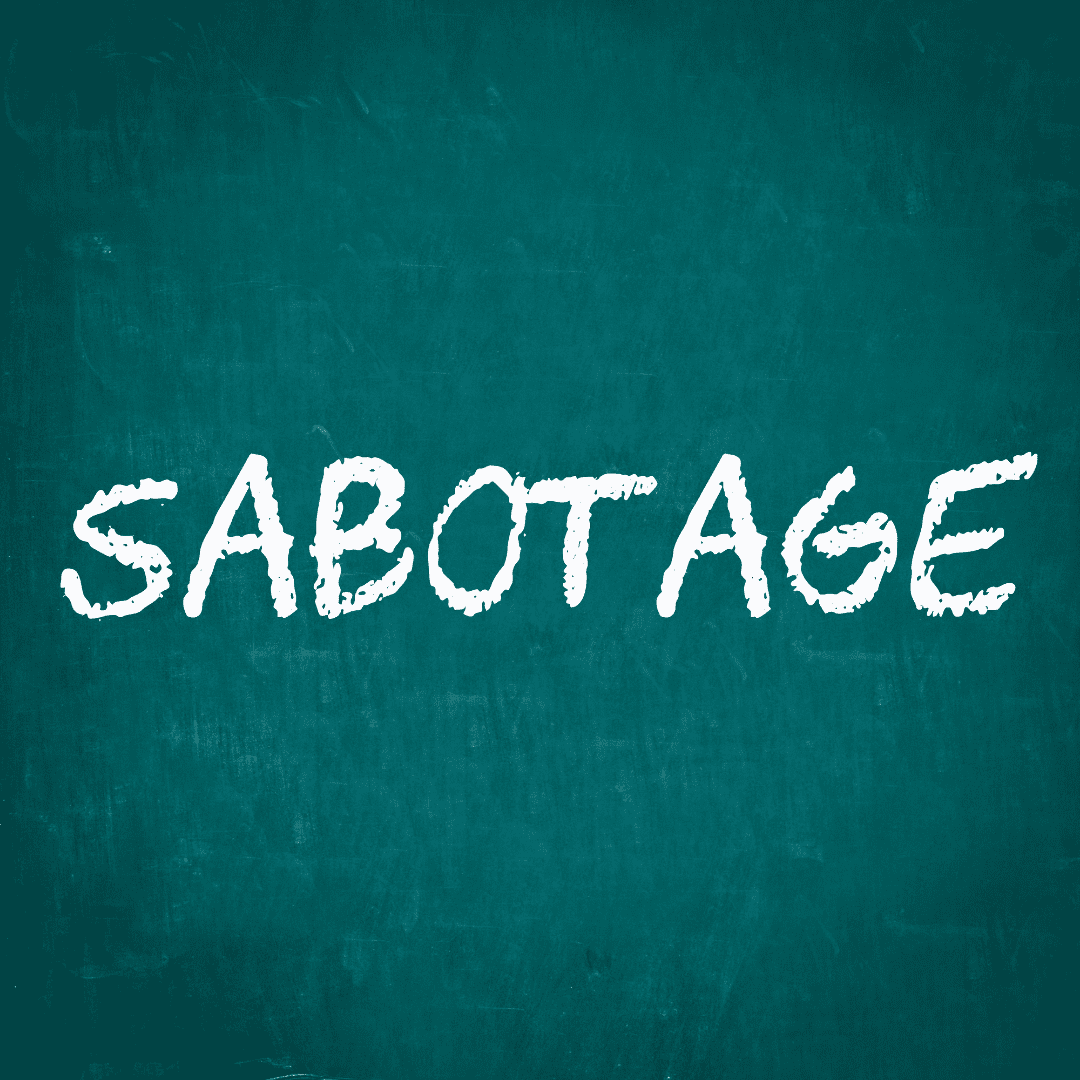What is self-sabotage?
Self-sabotage is when the actions you take and the way you live your life directly contradict the things you want, or what is best for you.
When we self-sabotage, we are being our own worst enemy. We are destroying our own chances of happiness and condemning ourselves to a life of self-induced suffering. This is why it is so important to learn to recognise and change our ways, to get out of our way.
Understanding self-sabotage
Our self-sabotage is nearly always rooted in our past experiences and our upbringing. As we grow up, we develop ways to try to make things easier for ourselves, to protect ourselves, to avoid feeling distressing emotions, and to avoid negative reactions from others.
Some examples:
* If you got yelled at when you showed emotions as a child, you learnt to bottle things up
* If you got hurt or let down early on, you learnt to not let people in, or push them away
* If you had an unstable upbringing, you developed a habit of trying to control everything
* If you experienced bullying or struggled to make friends, you developed people-pleasing habits
* If you were taught to believe you were no good, you learnt to never try so you never risked failing
* If you grew up with a physical threat of punishment, you learnt to lie really well
These are just a handful of examples, but there are many more. In all of these situations we can understand why someone might have learnt that response, it has an element of sense.
The difficult is when you continue applying these responses in situations much later in your life where it no longer serves any benefit
Why do we keep self-sabotaging?
Most of the time when we self-sabotage, we don’t do it intentionally, and often we aren’t really aware of what we are doing. As described above, the behaviours develop from a desire to protect ourselves and avoid negative outcomes.
It’s helpful to think of our self-sabotaging as fear driven. The fear of being hurt, rejected, disliked, abused, criticised. The fear of not coping, losing control, failing, or upsetting ourselves or others. These fears have strong emotions connected to them, so it makes sense that we want to avoid those feelings. That’s what makes self-sabotaging so hard to stop.
Signs of Self-sabotage
All humans self-sabotage to a lesser or greater extent. Have a look around at your friends and family, and you’ll likely spot lots of examples. It’s much easier to see it in others than recognise it for ourselves. Think about some of the more recent relationship reality TV shows that have achieved a huge audience – Love Island, Married at First sight, Love is Blind. We are all shaking our heads right at obvious examples of people self-sabotaging their relationships thinking what the hell are they doing? But it is really hard to see it in ourselves.
Here are some signs that you might be self-sabotaging:
* Invalidating your own feelings/not letting yourself feel
* Pushing others away or keeping them at arm’s length
* Setting yourself impossible standards
* Saying yes when you want to say no
* Not speaking up for yourself/avoiding conflict
* Engaging in alcohol, food, or drug self-medicating
* Procrastinating
* Making jokes at your own expense
* Having no boundaries with friends/family/colleagues
* Reckless spending
* Never asking for help or letting others in
* Compulsive lying
The impact of self-sabotage
Self-sabotage actions will take you in the exact opposite direction of happiness and peace. The very thing we want is often the very thing we are taking ourselves further away from. This can be really draining and feel like you are just existing and not really living.
I see so many examples of self-sabotage in my therapy room every day. It’s a huge part of the work I do. Not just with clients either, it’s a huge part of the self-improvement work I continue to do for myself. For example: for most of my life I have hidden from friends when I’m struggling, which left me feeling really alone, the exact opposite of what I really wanted. I’ve since learnt that if what I really want is to feel heard and supported, I need to stop hiding and playing down what’s going on and give my friends the opportunity to offer me support.
It’s important to learn to recognise what we really want, and if the actions we are taking and the way we are living our life is taking us in that direction or completely away from it.
Therapy for Self-Sabotage
Therapy for self-sabotage is really valuable. It’s hard to recognise our own examples of destructive behaviours, to understand why we do what we do, and how we might change it. That’s where therapy comes in. As a straight-talking therapist I will regularly point out to clients when I spot examples of self-sabotage. I am here to help you see where you are going wrong. Therapy will also help you to understand where these responses come from, and learn effective strategies to change your perspective on their usefulness (or not). We will work together bit by bit on the uncomfortable process of learning to do the exact opposite of what you’ve always done. I won’t lie, it’s not an easy thing to do, but it is transformative.
If you’d like to understand more about me and how I work, head here: Why Should I Choose You? | Hannah Paskin (hannahpaskintherapy.co.uk)





